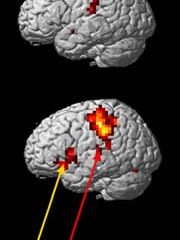News and developments from the field of interdisciplinary research.
Among other topics, you can find stimulating reports and articles related to microsystems, emotions research, futures research and stratospheric research.

A lack of investment in corporate research may be counterproductive to industry says Dr Elsa Reichmanis, director of Materials Research at Lucent Technologies` Bell Labs, New Jersey, USA. In an exclusive Tomorrow’s Leaders online broadcast, Reichmanis stated ‘In order to succeed in the long term, investment in the future is a must, and that means investment in research.’
Dr Reichmanis made her remarks during a one-hour live broadcast at www.tomorrows-leaders.net. She answered questions fr

Technology unravels mysteries of ancient corpse.
Glassy-eyed with a hole in the head – meet Nesperennub, the virtual-reality mummy. A new three-dimensional reconstruction of his insides swoops through musty layers of linen to penetrate his holy skull, without putting the ancient artefact at risk.
Egyptologist John Taylor smuggled the British Museum’s sealed coffin into a hospital computerized tomography (CT or CAT) scanner after hours. The resulting 1,500 flat scans hav

Research by a University of Sunderland psychologist has revealed that one in four people may have a special gift for predicting uncertainties like the weather.
Tests carried out by Professor Richard Heath, from the university’s Business School, also showed that this uncanny ability could possibly extend to the financial markets.
During his research volunteers were shown temperature figures for the previous eight days and were asked to predict the following four days.
The f

An ambitious project is underway to build the world’s smallest electronic nose.
If the project succeeds, it is expected that the technology would have many potential applications in areas such as environmental monitoring, healthcare and food safety.
The aim is to combine the odour sensors together with the signal processing components on to a single silicon chip, around a square centimetre in size. The instrument would require very little power and could be held comfortably

Linguists filter languages for sound before meaning.
Bilingual people switch off one language to avoid speaking double Dutch. By first sounding out words in their brain’s dictionary, they may stop one tongue from interfering with another.
Those fluent in two languages rarely mix them up. They switch between language filters that oust foreign words, Thomas Munte of Otto von Guericke University in Magdeburg, Germany, and his team suggest 1 .
Their

Colorado State University is leading a team of researchers who plan to develop sunflowers into a rubber-producing crop, alleviating the harvest of rubber trees in Southeast Asia and Brazil – currently the only natural source of rubber in the world.
The United States is currently totally dependent upon imports for its rubber supply, importing nearly 1.3 million tons a year at a cost of $2 billion. Almost all natural rubber comes from rubber trees including those grown on plantations in Malays